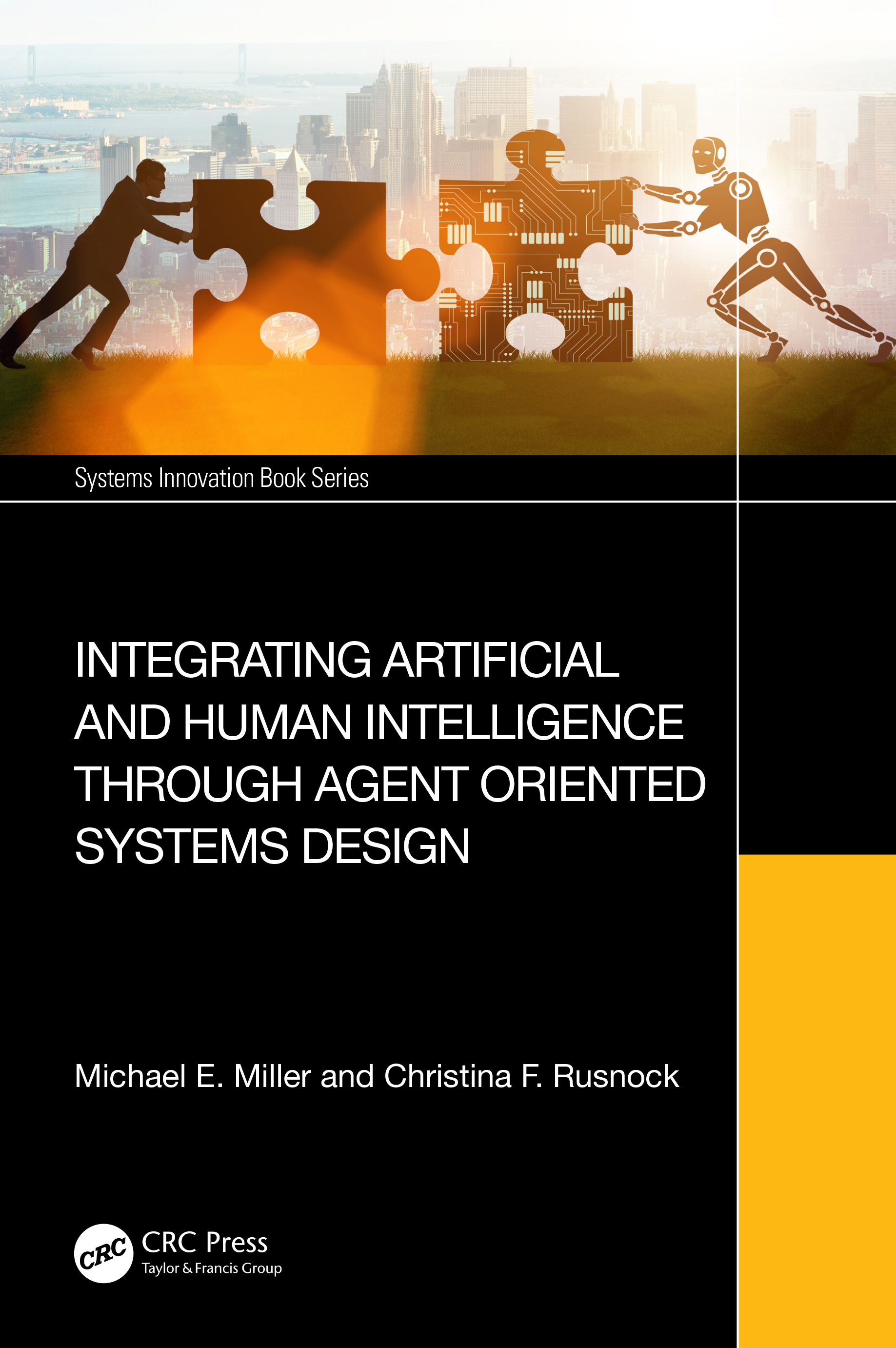
In September 2024 we released a new textbook titled
“Integrating Artificial and Human Intelligence Through Agent Oriented Systems
Design.” This text provides a design approach for performing conceptual design
of Human-AI Agent Teams.
While AI is often discussed as a replacement to humans, much
of the cognitive work we perform as humans is too complex to be performed by a
single individual. Therefore, we work in teams. In a team, individuals bring
diverse knowledge, skills, and abilities into the team environment. These team
members work interdependently to accomplish work that is critical enough to
require greater skill, ability, capacity, and redundancy than a single entity,
human or AI, can reliably provide in the time available. Given the need for
interdependent teamwork, this book presents a method for integrating one or
more AI agents into the team to perform work and support teamwork with humans
in the environment.
The book begins by introducing Human-AI Teaming, defining
the necessary terminology and background. It then addresses important
considerations to scope the team to be designed, define the team’s goals and responsibilities,
and then discusses teaming to help the reader understand goals and
responsibilities inherent in teamwork. Through these chapters, the text
discusses methods to analyze the existing work environment to establish an
understanding of the work that is conducted within the target environment. Following
this discussion, the book discusses opportunities that AI provides for redesign
and provides a high-level discussion of various AI categories and their
potential use in Human-AI Teams. The book then walks through a redesign
process, discussing allocation of responsibilities within teams, providing
example architectural patterns for Human-AI Teams, discussing decision making
and support system considerations, as well as designing systems for exceptions to
improve resilience. Finally, methods are introduced to evaluate the design, and
the design is translated into requirements for the system and individual AI
agents.
The entire process designs team interaction among humans and
future AI agents. Designing this interaction is particularly important to
enhance the speed and robustness of decisions. This book uses a Model Based Systems
Modeling methodology to support the design of AI systems to support teamwork.
This book was developed over the past decade to support a course in Human-Agent
Teaming that was requested by the 711th Human Performance Wing and built upon
research that was funded by the Air Force Office of Scientific Research. This
course on Human-Agent Teaming (HFEN 665) is offered by AFIT’s Department of Systems Engineering and Management as either in-residence or online using
distance learning from the AFIT Graduate School. The textbook is available
from the AFIT library at https://doi-org.afit.idm.oclc.org/10.1201/9781003428183
for those who have access or at https://doi.org/10.1201/9781003428183.